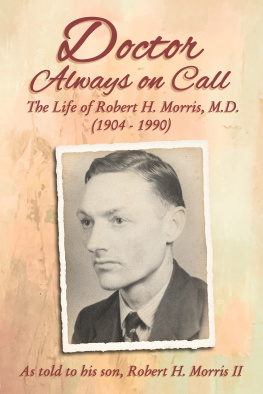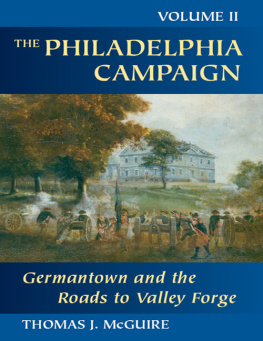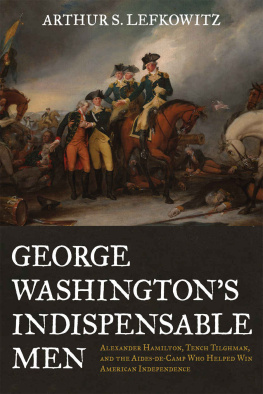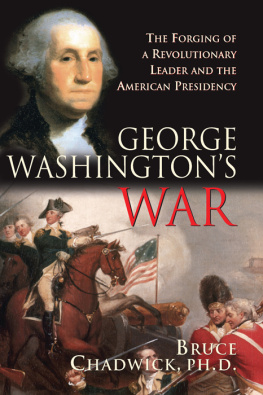
ALSO BY CHARLES RAPPLEYE

Sons of Providence: The Brown Brothers, the Slave Trade,
and the American Revolution
All American Mafioso: The Johnny Rosselli Story (with Ed Becker)

Simon & Schuster
1230 Avenue of the Americas
New York, NY 10020
www.SimonandSchuster.com
Copyright 2010 by Charles Rappleye
All rights reserved, including the right to reproduce this book or portions thereof in any form whatsoever. For information address Simon & Schuster Subsidiary Rights Department, 1230 Avenue of the Americas, New York, NY 10020.
First Simon & Schuster hardcover November 2010
SIMON & SCHUSTER and colophon are registered trademarks of Simon & Schuster, Inc.
For information about special discounts for bulk purchases, please contact Simon & Schuster Special Sales at 1-866-506-1949 or business@simonandschuster.com.
The Simon & Schuster Speakers Bureau can bring authors to your live event. For more information or to book an event, contact the Simon & Schuster Speakers Bureau at 1-866-248-3049 or visit our website at www.simonspeakers.com.
Designed by Paul Dippolito
Manufactured in the United States of America
1 3 5 7 9 10 8 6 4 2
Library of Congress Cataloging-in-Publication Data
Rappleye, Charles. Robert Morris : financier of the American Revolution / Charles Rappleye. p. cm.
Includes bibliographical references. 1. Morris, Robert, 17341806. 2. United StatesHistoryRevolution,
17751783Biography. 3. United StatesPolitics and government17751783
Biography. 4. GovernorsPennsylvaniaBiography. I. Title. E302.6.M8R37 2010 973.3092dc22
[B] 2010020461
ISBN 978-1-4165-7091-2
ISBN 978-1-4165-7286-2 (ebook)
To my wife Tulsa Kinney:
mind, body, soul.
CONTENTS
ROBERT MORRIS
INTRODUCTION
I first came across Robert Morris in the research for my last book, Sons of Providence, a story from the time of the American Revolution. John Brown, a prominent Rhode Island merchant, was spearheading opposition to the prospect of new, federal taxes, which he considered just as oppressive as the taxes imposed by Parliament. Morris was the leading advocate for the new funding plan; I was struck by his compelling arguments in support of the national government, and at his audacity in dispatching Thomas Paine to Providence to lobby for the cause.
The source material for this remarkable episode was contained in The Papers of Robert Morris, a nine-volume collection issued under the stewardship of historian E. James Ferguson over the course of twenty-five years, with the last volume published in 1999. The scope of Morriss endeavors, the depth of his frustration, and the lucidity of his prose stuck with me in the months it took to finish my manuscript.
Once that book was published I returned to Morris. I was surprised to find that despite the publication of the Morris papers, no modern-day biographer had taken advantage of Fergusons labors to produce a full treatment of this central figure in Americas founding saga. Indeed, Morris had been all but forgotten in the recent surge of interest in the nations founding era.
This was more than just a disservice to a remarkable career. Morriss absence from the story leaves a gaping hole in our understanding of the social and political struggles that bedeviled the revolutionary war effort, led to the writing of the Constitution, and helped launch America as a financial powerhouse. The more I learned of Morris, the easier became the choice of what my next project should be.
The most recent books on Morris, prior to this biography, are major works from 1954 and 1961 covering his four-year tenure as superintendent of finance in the revolutionary government. In this position Morris acted in the capacity of treasury secretary at a time when finances were the most urgent and vexing problem confronting the new nation. More than that, Morris was the chief civil officer in the government, with full authority to hire and fire any employee of Congress or the armed forces. In a very real sense he was, as one of his critics complained, a pecuniary dictator.
His ascendance may not have been a great moment for American democracythough his appointment was made by a unanimous vote in Congressbut it was very good for the progress of the Revolution. Faced with an empty treasury, a worthless currency, and an economy in disarray, Morris leaned heavily on his own personal fortune to provide crucial aid to General George Washington and salvage the credit of the rebel government with key allies in Europe, and he projected in detail the scheme for federal revenues that came to be known as Alexander Hamiltons funding program.
At the same time, Morris laid the foundation for a financial system that would establish America as the worlds economic leader. He introduced the concepts of banking and commercial finance on a national basis, and persuaded a skeptical public to endorse his vision and set it in motion. He conceived, and in the years to come would implement, measures to restore the nations credit and encourage capital formation that speak directly to the financial crisis that confronts the world today.
This was the period of Morriss greatest influence, a time of prominence and prodigious exertion acknowledgedalbeit in passingby most of our more sagacious historians. But as I delved further, I found that Morris was deeply engaged in the war effort and the affairs of Congress from the very onset of Americas split with England. He was active in the early opposition to the Stamp Act, was instrumental in the clandestine and today little-known effort to arm the rebel colonies, and worked closely with Benjamin Franklin in forging ties to France, a critical source of support throughout the Revolution. For three critical months in the winter of 1777, when Congress fled Philadelphia for the relative safety of Baltimore, Morris ran the operations of the American government virtually single-handed.
Just as interesting was Morriss political odyssey. By nature open, warm, and gregarious, just as comfortable in a grog shop as in the parlors of Philadelphias mercantile elite, Morris was in the beginning of the war a reluctant but consensus candidate for a series of important state and national offices. Over time, as the old social order was shaken by the new political forces of democracy and liberty, Morris came to be identified as a spokesman for wealth and stability, and was excoriated by early radicals like Samuel Adams as a corrupting influence on the Republican virtue they hoped the Revolution would foster.
But Morris was no ideologue. Pragmatic, creative, addicted to hard work, as one student of his career put it, Morris shrugged off his critics and focused his exceptional energies on problems that crashed in waves against the rickety bulwark of the nascent national government. His perseverance and his steadfast integrity won him the allegiance of his fellow foundersFranklin, Hamilton, James Madison, John Adams (though never his cousin Sam), and especially Washingtonand he became the leader of the faction that, four years after the peace with Britain, wrote the new Constitution.
Among this collection of imposing and often brilliant men, Morris was a principal character, a leader and an icon who dominated the councils of the Revolution. Yet he was also enormously controversial. He was rich in an era when popular ideology celebrated austerity. He was skeptical of the virtues of democracy and an unabashed global capitalista man ahead of his time. During the Constitutional Convention and in the first sessions of the novel United States Senate, he often let surrogates handle the floor debates because he knew that the simple fact of his endorsement could kill the measures he supported.
Next page










